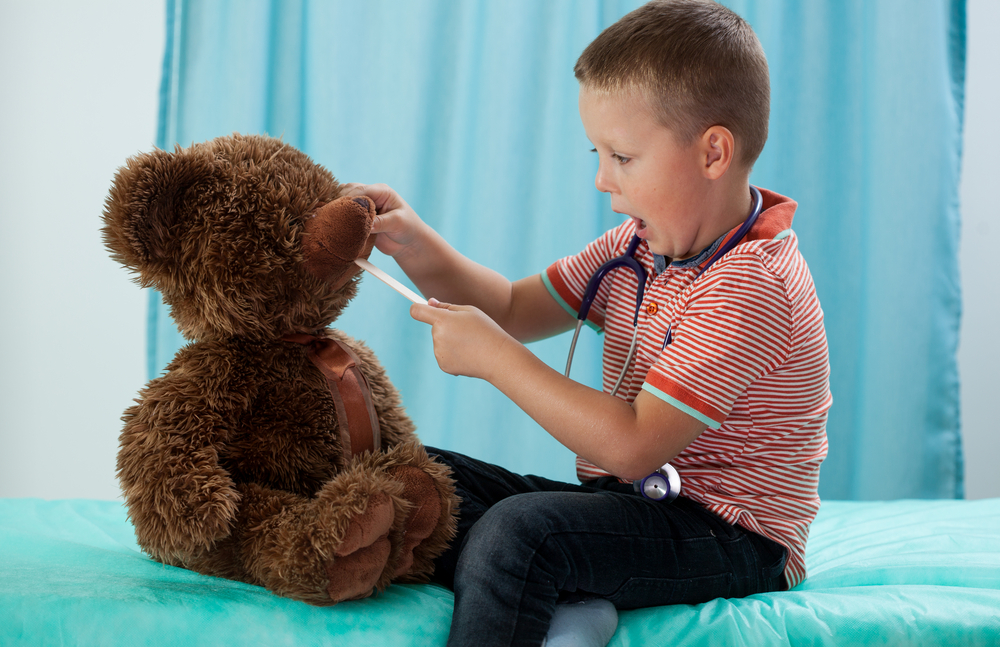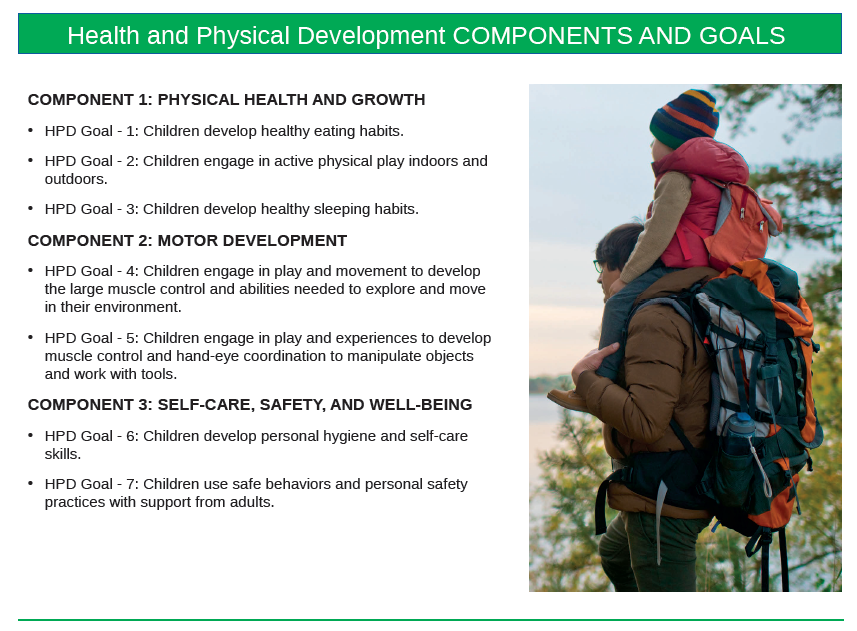
Health & Physical Development (HPD)
Health & Physical Development Domain
The Health and Physical Development domain focuses on children’s physical growth, motor development, sound nutritional choices, self-care, and health and safety practices. Children’s development in this area supports learning and plays a part in their ability to be successful in any type of activity. Healthy children who are able to move and play are ready to learn more effectively in all domains.
Nutrition
During the time from birth to age five, children’s bodies go through a period of rapid growth. Their body more than doubles in size and their brain develops more rapidly than during any other period in the lifespan. Helping children establish good health and eating habits is extremely important. Good nutrition promotes not only physical growth and health, but also cognitive skills such as memory, problem solving, and decision-making. Children grow and develop best when they are provided a healthy and balanced diet, have sufficient rest, and are physically active to help develop strength and stamina.
Large Motor Movement
In addition to healthy eating habits, young children develop motor skills that support coordination and physical fitness. Although developmental milestones don’t occur at the exact same time for all children, their growth and motor development tend to follow a similar sequence as their skills build upon each other. They move from turning over to sitting up, from crawling to walking, and then from running to playing organized games. They also develop fine or small motor skills as they learn to use their hands for a variety of tasks.
Independence
Health and physical development also include children’s growing independence in carrying out personal routines and their awareness of health and safety practices. This awareness and independence grow when children begin to participate in individual routines such as bathroom responsibilities, putting away toys, or washing their hands. It is particularly important to pay attention to families’ preferences and the routines that children are accustomed to at home. Self-care routines that are consistent with the family’s culture will be more comfortable for children. Also, adults should be careful to help children develop a sense of independence in ways that are comfortable for families. When children are very young, they need the constant presence and guidance of adults to help them carry out routines and ensure their safety. However, as they grow older, children show greater independence. Adults can work with families to decide when and how to promote children’s self-care routines and independence.
Safety
Adults can promote physical development by providing children with a safe, supervised environment where play is encouraged, and children have ample opportunities to explore. Both indoors and outdoors, children need opportunities to move freely, to explore different types of play equipment, and to participate in planned and spontaneous movement activities. Adults should provide time for children to play and participate in a variety of activities in a risk-free, non-competitive environment.
Fine Motor Skills
Children also need opportunities to choose from activities that will help them develop their fine motor skills by working with an assortment of age-appropriate materials such as playdough, blocks, sand and writing utensils. For older children, this could include computers that have a modified mouse and touch screen capacity. Over time, engaging in these activities will help children develop the strength, control and hand-eye coordination necessary for self-help skills such as dressing and eventually, for writing.
Finally, it is important to remember that each child develops at their own pace. However, adults may be the first to notice that a child’s development is not consistent with typical expectations. If a parent or other adults that work with children is concerned that a child is not meeting many or all the developmental indicators described in this document, additional evaluation may be needed. Be sure to consult your family physician or a pediatrician or seek out your early intervention program to inquire about a developmental screening.

Component 1: Physical Health and Growth
Component 2: Motor Development
Component 3: Self-Care, Safety, and Well-Being
